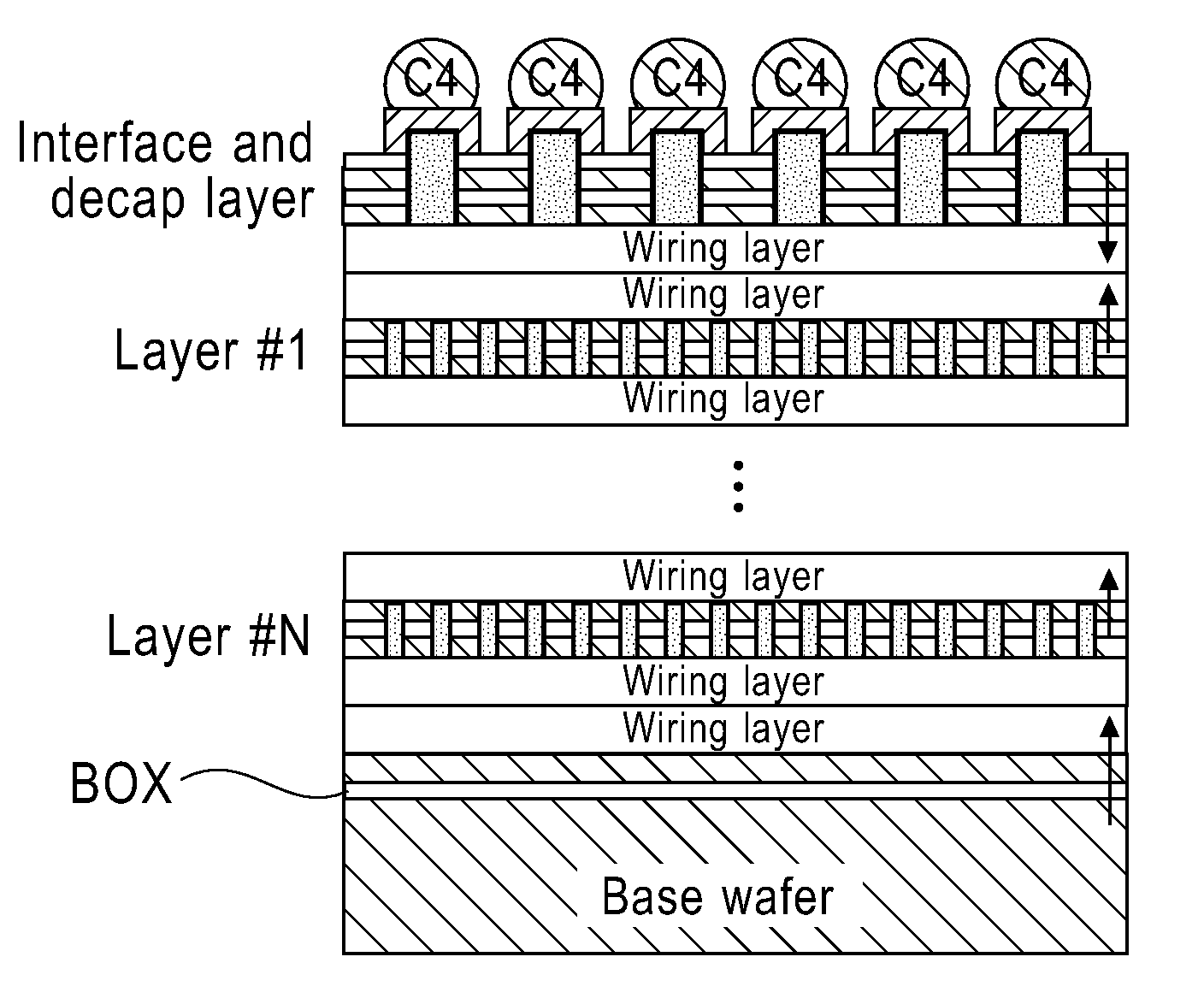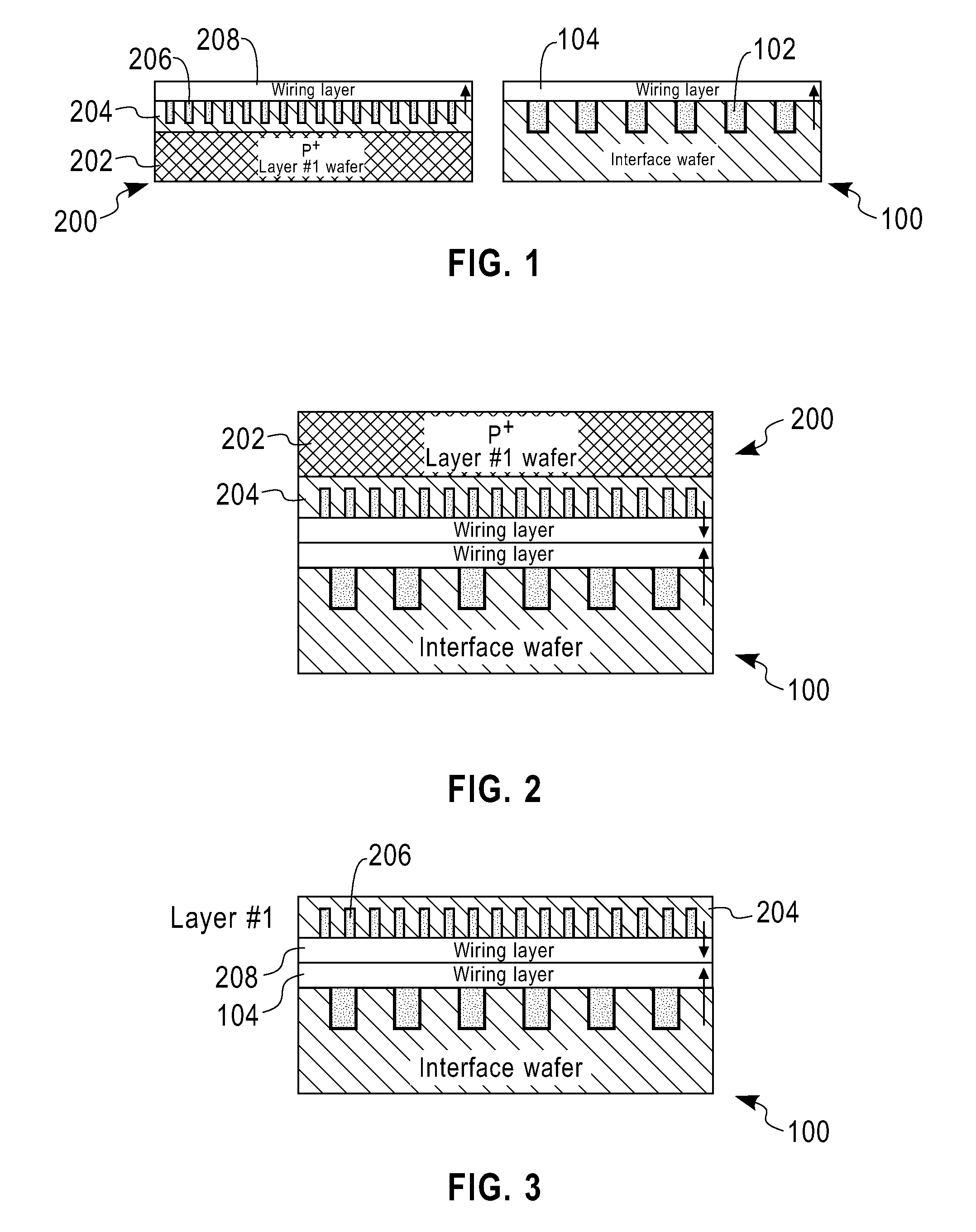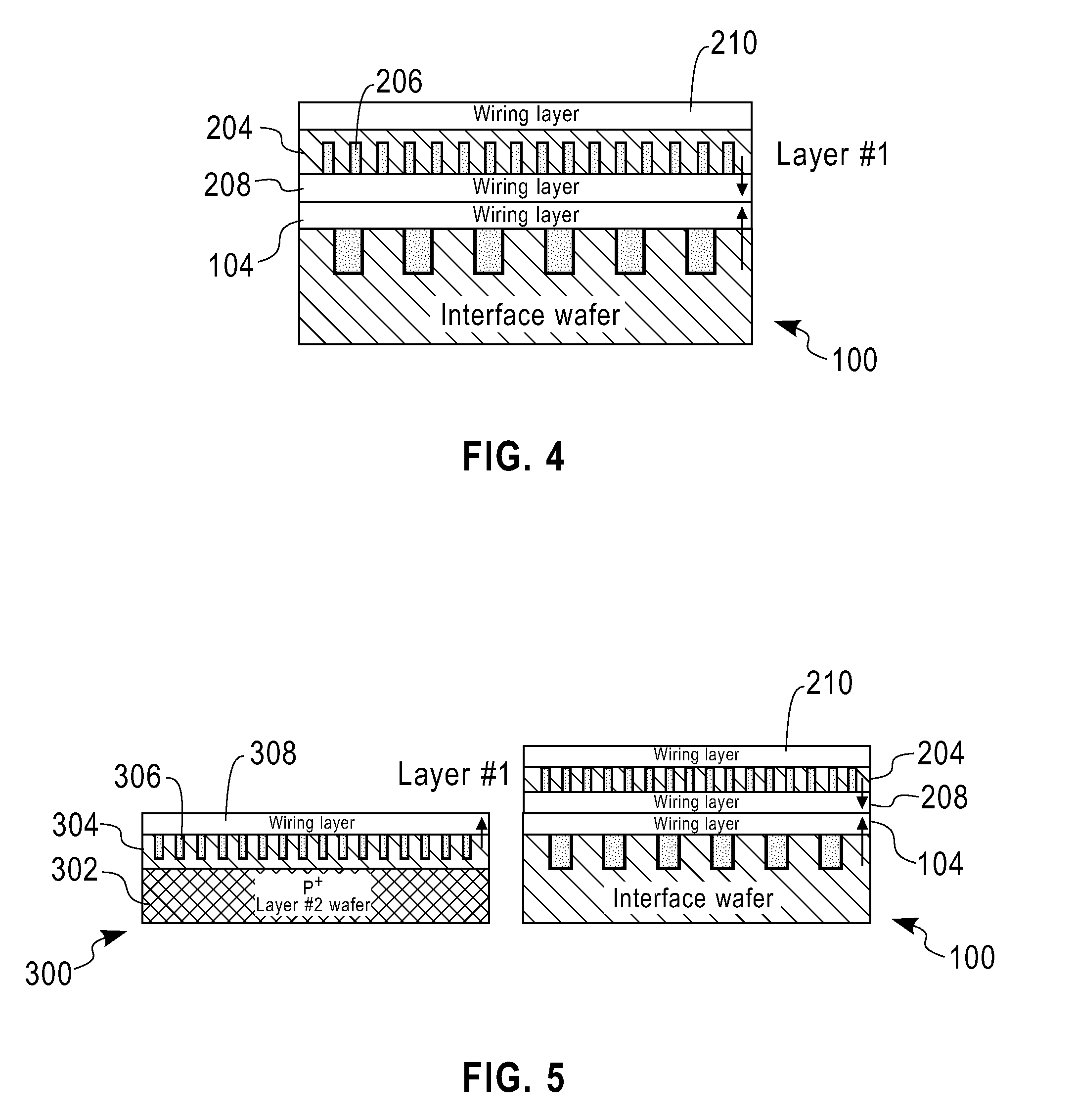3D integrated circuit device having lower-cost active circuitry layers stacked before higher-cost active circuitry layer
a technology of active circuitry and integrated circuits, which is applied in the field of three-dimensional (3d) integrated circuit devices, can solve the problems of not being able to produce final substrates using general purpose substrate thinning techniques, and not being able to achieve soi circuits having structures,
- Summary
- Abstract
- Description
- Claims
- Application Information
AI Technical Summary
Benefits of technology
Problems solved by technology
Method used
Image
Examples
Embodiment Construction
[0017]Preferred embodiments of the present invention will be described in detail hereinbelow with reference to the attached drawings.
[0018]Embodiments of the present invention improve manufacturing yield by stacking lower-cost active circuitry layers of a 3D integrated circuit device before one or more higher-cost active circuitry layers. Lower-cost active circuitry layers are less expensive to manufacture than higher-cost active circuitry layers. In one exemplary embodiment, multiple memory layers of a 3D integrated circuit device are integrated with a logic layer. All of the memory layers are stacked first, and the logic layer is added to the stack last. Because the lower-cost memory layers are stacked before the higher-cost logic layer, the risk of damage to the logic layer during assembly is reduced. Thus, the present invention improves yield for 3D integrated circuit devices, and lowers manufacturing cost.
[0019]FIGS. 1 to 11 illustrate a process for fabricating a three-dimensio...
PUM
 Login to View More
Login to View More Abstract
Description
Claims
Application Information
 Login to View More
Login to View More - R&D
- Intellectual Property
- Life Sciences
- Materials
- Tech Scout
- Unparalleled Data Quality
- Higher Quality Content
- 60% Fewer Hallucinations
Browse by: Latest US Patents, China's latest patents, Technical Efficacy Thesaurus, Application Domain, Technology Topic, Popular Technical Reports.
© 2025 PatSnap. All rights reserved.Legal|Privacy policy|Modern Slavery Act Transparency Statement|Sitemap|About US| Contact US: help@patsnap.com



